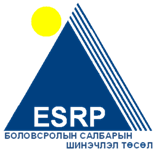Moodle is like a wiki that is specially organised to support on-line courses. The documentation outlines the pedagogical rationale behind the organisation of the application. Lord help you if you don't agree with the rationale or the organisation. If Moodle is hosted on your server, information technology people need to support it by keeping it up-to-date and troubleshooting problems.
I guess the thing I like about using Google Apps and Google Sites as an instructional framework is its flexibility. However, flexibility has a downside, since it can take longer to organize, and if you don't think through the organization of your space and the spaces of your students, you can design something that is too complex to be useful. Google does allow most of the features you might desire to organize groups such as wikis, blogs, websites, questionaire forms, calendars spreadsheets, presentations and documents, but you have to pull in the diverse elements from different tools. Once you have a good structure organized, however, you can copy it, discard the old content and reuse it.
Tools like Moodle are highly specialised, so skills you learn managing Moodle only apply to that program. Google Apps and Google Sites are usable for a wide range of work, recreational, social networking and educational projects. Skills you learn using Google Apps and Google Sites can easily be applied in different contexts. Try out some of the sample courses from Moodle. They will give you ideas about what is possible to achieve with on-line tools.
Google Apps and Google sites are web-based services. The structure is more general, and is suited to recreational, business, and educational uses. The services are maintained and upgraded constantly by Google. The bulk of support required from local information technology support staff is to make sure that the computers and network work and that the computers have up-to-date browsers. If the organisation uses account management features from Google, then local staff can manage permissions and delete stale accounts.
I guess the thing I like about using Google Apps and Google Sites as an instructional framework is its flexibility. However, flexibility has a downside, since it can take longer to organize, and if you don't think through the organization of your space and the spaces of your students, you can design something that is too complex to be useful. Google does allow most of the features you might desire to organize groups such as wikis, blogs, websites, questionaire forms, calendars spreadsheets, presentations and documents, but you have to pull in the diverse elements from different tools. Once you have a good structure organized, however, you can copy it, discard the old content and reuse it.
Tools like Moodle are highly specialised, so skills you learn managing Moodle only apply to that program. Google Apps and Google Sites are usable for a wide range of work, recreational, social networking and educational projects. Skills you learn using Google Apps and Google Sites can easily be applied in different contexts. Try out some of the sample courses from Moodle. They will give you ideas about what is possible to achieve with on-line tools.


No comments:
Post a Comment